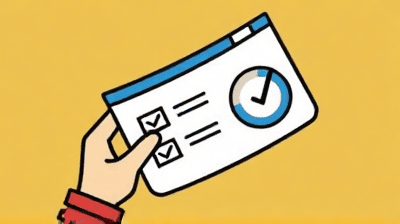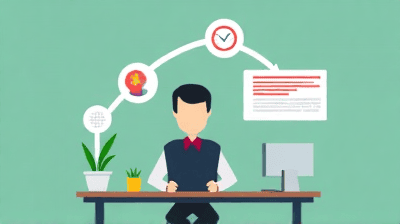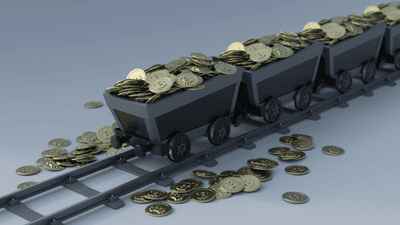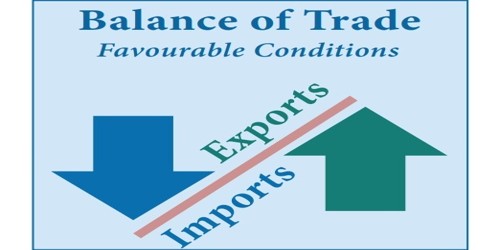
A good credit score is essential for financial health. It affects your ability to secure loans, negotiate interest rates, and even rent an apartment. For those looking to make significant purchases, such as a home or a car, a high credit score can save you thousands of dollars over time. If you find yourself needing to boost your credit score quickly, there are several strategies you can employ.
Understanding Credit Scores
What Is a Credit Score?
A credit score is a numerical representation of your creditworthiness, derived from your credit history. Generally ranging from 300 to 850, higher scores indicate better creditworthiness. The score is used by lenders, landlords, and even some employers to evaluate how likely you are to repay debt. Credit scores are calculated based on several factors, including payment history, credit utilization, length of credit history, new credit, and types of credit used.
Key Credit Score Ranges
- 300 to 579: Poor credit
- 580 to 669: Fair credit
- 670 to 739: Good credit
- 740 to 799: Very good credit
- 800 to 850: Excellent credit
Understanding where you stand within these ranges can help you strategize for improvement.
Factors That Affect Your Credit Score

Before diving into strategies for quickly improving your credit score, it is essential to understand the various factors that influence your credit score:
Payment History (35%): This is the most significant factor affecting your credit score. It includes your on-time payments, late payments, and any bankruptcies or foreclosures.
Credit Utilization (30%): This ratio measures how much of your available credit you are using. Ideally, you should aim to keep this below 30 percent.
Length of Credit History (15%): A longer credit history tends to increase your score. This factor considers how long your accounts have been active and the average age of your accounts.
New Credit (10%): Opening several new credit accounts in a short period can negatively impact your score. This factor accounts for hard inquiries, which occur when you apply for new credit.
Types of Credit Used (10%): Having a diverse mix of credit accounts, including credit cards, installment loans, and mortgages, can enhance your score.
Quick Strategies to Improve Your Credit Score
1. Check Your Credit Report
The first step in improving your credit score is to review your credit report. You can obtain a free report from each of the three major credit bureaus—Experian, TransUnion, and Equifax—once a year through AnnualCreditReport.com. Checking your report allows you to identify any inaccuracies or discrepancies that may be negatively affecting your score.
Action Steps:
- Request your credit report from all three bureaus.
- Look for errors, such as incorrect account balances or payment histories.
- Dispute any inaccuracies with the credit bureau, providing supporting documentation.
2. Pay Your Bills on Time
Your payment history is the most critical factor affecting your credit score. Late payments can significantly damage your credit. To improve your score quickly, prioritize paying all your bills on time going forward.
Action Steps:
- Set up automatic payments for bills to ensure you do not miss due dates.
- Use reminders or calendar alerts to keep track of payment deadlines.
- If you have missed payments, catch up as soon as possible to minimize the impact.
3. Reduce Credit Card Balances
Credit utilization is the second most important factor in your credit score. Aim to keep your balances low relative to your available credit. A high credit utilization ratio can hurt your score, even if you make payments on time.
Action Steps:
- Calculate your current credit utilization ratio by dividing your total credit card balances by your total credit limit.
- Aim to reduce your balances to below 30 percent of your total limit.
- If possible, pay off high-interest credit cards first.
- Consider making multiple payments within a billing cycle to keep your balances low.
4. Become an Authorized User
If you have a family member or close friend with a good credit history, consider becoming an authorized user on their credit card. This allows you to benefit from their positive credit history without being responsible for payments.
Action Steps:
- Discuss the possibility with the potential cardholder.
- Ensure the primary cardholder has a history of on-time payments and low credit utilization.
- Monitor how this adds to your credit score over time.
5. Open New Credit Accounts Wisely
While applying for new credit can result in hard inquiries that may temporarily lower your score, responsible use of new credit can improve your credit mix and overall length of credit history.
Action Steps:
- Only apply for new credit when necessary and if you can maintain responsible repayment practices.
- Consider opening a secure credit card if you are a beginner in credit usage. This card requires a cash deposit as collateral, which can help build credit with responsible use.
6. Use a Credit Builder Loan
A credit builder loan is designed specifically to improve your credit score. These loans require borrowers to make regular payments into a savings account, which they can access at the end of the term.
Action Steps:
- Research financial institutions or credit unions that offer credit builder loans.
- Make consistent payments to help build your payment history.
7. Keep Old Credit Accounts Open
The length of your credit history plays a vital role in determining your score. Keeping old credit accounts open, even if you are not using them, can help enhance your credit history.
Action Steps:
- Avoid closing old accounts, especially those with a good payment history.
- If you worry about inactivity fees, consider making small purchases and paying them off immediately.
8. Limit Hard Inquiries
When you apply for new credit, lenders perform hard inquiries to assess your creditworthiness. Multiple hard inquiries in a short period can lower your score.
Action Steps:
- Research and compare offers before applying for credit to minimize hard inquiries.
- Space out your applications. If you are rate shopping for loans (such as auto or mortgage), try to do it within a short period to minimize the score’s impact.
9. Consolidate Debt Strategically
If you have multiple credit cards with high balances, consider debt consolidation. This involves combining multiple debts into one loan with a lower interest rate, making it easier to manage payments and may lower your credit utilization.
Action Steps:
- Look into personal loans or balance transfer credit cards that offer lower interest rates.
- Develop a repayment strategy to ensure you stay on track.
10. Use Credit Monitoring Services
Credit monitoring services can help you keep track of your credit score and alerts you to changes in your credit report. Some services offer free options, while others may have fees.
Action Steps:
- Sign up for free credit monitoring services to track your score.
- Regularly review alerts to stay informed of any changes or potential identity theft.
11. Negotiate Outstanding Debts
If you have collection accounts, consider negotiating with creditors to settle outstanding debts for a lower payment. Many creditors are willing to negotiate favorable terms.
Action Steps:
- Contact your creditors to discuss settlement options.
- Get any agreement in writing before making payments.
12. Diversify Your Credit Mix
While maintaining a good payment history is crucial, having a healthy mix of credit types can positively affect your score. This can include credit cards, installment loans, and retail accounts.
Action Steps:
- Evaluate your current credit mix and consider diversifying responsibly.
- Avoid opening too many new accounts at once; instead, build diversity over time.
13. Follow Up on Disputed Items
After disputing inaccuracies on your credit report, monitor the results. The credit bureau is required to investigate disputes, which can take up to 30 days.
Action Steps:
- Keep records of all disputes and any correspondence with credit bureaus.
- Check your credit report after disputes to ensure corrections were made.
14. Stay Informed About Your Rights
Understanding your rights concerning credit reporting and debt collection is essential. Familiarize yourself with the Fair Credit Reporting Act and the Fair Debt Collection Practices Act.
Action Steps:
- Educate yourself about consumer rights related to credit and debt.
- Report any violations to the appropriate authorities.
Long-Term Strategies for Credit Score Improvement

While quick fixes can yield immediate results, sustainable credit score improvement requires ongoing effort and planning. Consider these long-term strategies:
1. Create a Budget
A solid budget helps you manage your finances effectively while ensuring that debts are paid on time. Setting aside funds for savings and investments can also strengthen your financial health over time.
Action Steps:
- Track your income and expenses for several months to identify spending patterns.
- Create a realistic budget that accounts for debt repayment and savings.
2. Establish an Emergency Fund
Having savings set aside for unexpected expenses can prevent you from relying on credit cards and causing potential damage to your credit score.
Action Steps:
- Aim to save at least three to six months’ worth of living expenses in an easily accessible account.
- Start by saving small amounts regularly and increase contributions as possible.
3. Educate Yourself About Credit Management
Staying informed about best practices related to credit management can empower you to make informed decisions.
Action Steps:
- Read books, articles, and attend workshops on personal finance and credit management.
- Follow reputable financial blogs and podcasts to stay updated on new strategies.
4. Revisit and Adjust Your Financial Goals Regularly
As your financial situation changes, revisiting and adjusting your goals ensures they remain relevant and achievable.
Action Steps:
- Set both short-term and long-term financial goals related to credit, savings, and investing.
- Review these goals regularly and make adjustments as your financial situation evolves.
Conclusion
Improving your credit score quickly is achievable through focused actions and strategic planning. By understanding the factors that influence your credit score and implementing the outlined strategies, you can enhance your financial prospects and secure better opportunities in the future.
While some quick-fix strategies can deliver immediate improvements, lasting change requires long-term commitment and responsible financial behavior. Prioritize timely payments, maintain a low credit utilization ratio, and nurture a diverse credit mix. As you develop good credit habits, you will not only see an improvement in your credit score but also build a strong foundation for your overall financial health.
Remember, improving your credit score is an ongoing process that reflects your financial choices and habits. With dedication and a proactive approach, achieving and maintaining a high credit score is within your reach.
Related
-
Financial News

-
Cryptocurrency

-

-
Forex Market

-
Economic Indicators

-
Forex Market

